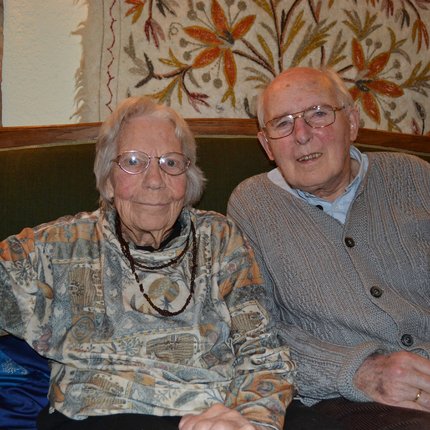Dr Gottfried Riedel - TLM Hero
Dr Gottfried Riedel - TLM Hero
Doctor, German

In 1951, Dr Gottfried Riedel travelled to India on behalf of The Leprosy Mission International. One year later his wife, Helle, and their three children joined him in Calicut and Chevayur, in Kerala, where they ran the leprosy hospital.
At that time this was a sanatorium, in which most patients lived as outcasts for many years, often until they died. New medicines, physiotherapy, reconstructive surgery, rehabilitation and several out-stations were introduced. There was also a school, vocational training and a number of workshops for carpentry, weaving, tailoring, silver and ironsmiths, and agriculture. In that time, sanitation was also improved as wells and running water were introduced.
The work of the Riedel family was supported by a circle of friends from Esslingen, Germany. This grew into what is now The Leprosy Mission Germany. Dr Riedel and family members worked on the Board of TLM Germany for many years and shaped the work.
From 1965, Dr Riedel worked in West Bengal and Nepal before the family moved to Bhutan in 1966. Here, on behalf of the government, after having done an extensive survey of the country, they set up leprosy work in four hospitals, where general health care was always included. Agriculture in the form of vegetable growing, orchards and poultry were also introduced. The living and working conditions were very different from those in India. There was a lack of medical equipment and sanitation, electricity and heating. The challenge was to achieve as much as possible with the little that was available.
After his return to Germany in 1969, he opened a medical practice in Esslingen and spent a few months in Bhutan in between. In 1982, the Riedels left for another four years in Bhutan to coordinate the work of The Leprosy Mission and to extend the work to the villages.
Even after their return to Germany and during his retirement, Dr Riedel was committed to The Leprosy Mission and travelled to Bangladesh, Tanzania, Russia and Bhutan for several months until 1994. On these travels he undertook surgery, surveys, and consulting, as well as standing in for doctors on leave.
Because many persons affected by leprosy must fight against exclusion and discrimination in addition to their illness, the Riedel couple has always been concerned about the spiritual and social aspects of leprosy, as well as the reintegration of those affected into the family and society.
Looking back on their very eventful lives, Mr. and Mrs. Riedel said in an interview: "We would do it again at any time."